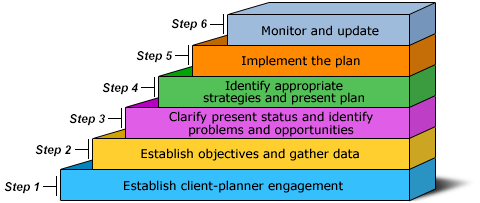Even if you are not a football
fan, you can relate to heartbreak. Without
a doubt, heartbreak manifests itself at the end of a football season. It comes when a team doesn’t cross the goal
line to score points in their favor. After Sunday’s Western CFL Final, there is no scarcity of questions about “What happened” when our much-loved Saskatchewan Roughriders faced off against the Winnipeg Blue Bombers. Three different times they were well-positioned
for a touchdown and couldn’t cross that elusive line to score big even from only
one and a half yard away. You can also
question, “How does this happen?” The situation is tense; nerves are rattled;
and confusion arises. The worst part is the
number of attempts and the time on the game clock is limited. You probably can see where I am going with
this.
You may not realize it but we are
playing the same kind of game. It’s
slightly different because we are not tossing or carrying a football across the
goal line but we do have a goal in mind. We are always playing and trying to
score. We make big plays to purchase a
home, save for retirement, and pay down debt. Guess what?
We have only so much time on our clock to do this.
I love the fact that the Canadian
Football League (CFL) wraps up in November, the same month designated as Financial Literacy Month. The connection between playing football and handling
your finances is about creating winning strategies. Neither of these are easy feats. We need a well-designed game plan to execute
winning drives to win football games; and we need well-designed financial plans
to secure our future retirements. Both
require plans of action.
Les Brown, a motivational speaker
and author said, “Your goals are the
roadmaps that guide you and show you what is possible for your life.” With this said, once we know what we want, we need
the roadmap. Ironically, a first crucial step in the financial
planning process is “Establish objectives.” Then, we require the appropriate direction to reach
our objectives (goals).
In an article, How to Overcome Behavioural Barriers to Reach Your Goals,
Dilip Soman, Canada Research Chair in Behavioural Sciences and Economics
Director, explained there’s a common behavioural
disconnect in the financial planning process:
even though you’re eager to reach your goals, it can be hard to motivate
yourself to write a financial plan.
“For many,” he says, “retirement is far into the future and the link
between getting a financial plan made and their future well-being is tenuous.”
No one should question whether
they can or cannot retire at a future date. The answer shows up in a financial plan. Much
like a football playbook draws up winning plays where coaches and players run
the play, test for results, and tweak if necessary, a financial plan resembles
its twin.
Although retirement may seem far
off in the future for some or may feel right around the corner for others, the
question hangs in the air whether we will be able to make this happen. Will we be able to financially cross the goal
line from working to retirement? Do we
have the link to help us make that decision?
The opening chapter of 10 things I wish someone had told me about retirement
presents an excerpt from the website of Insurance-Canada.
“Canadians need to realize that retirement is not a 20 – or 30-year
vacation,” says Monique Tremblay, senior vice president of Savings and
Segregated Funds for Desjardins Financial Security. “People need to change their
behaviours and start planning for retirement as soon as possible – earlier than
the average age of 35 years old. It is
understandable that the extent of the planning and savings must be in relation
to the needs and financial capacity, but a simple plan is better than no plan
at all,” adds Tremblay. “Retirement planning
is not just about RRSP contributions.
People also need to consider the social aspects of retirement and how
that impacts their finances as well.”
My takeaway is we can’t fool
ourselves into believing we can stop working because the calendar tells us it’s
time. We have reached the magic
age. We need to take a hard look at our potential retirement income to
ensure we are not heartbroken when we discover we can’t afford to retire. We
can take a lesson from the Riders' painful lost.
In case you did not know, the Saskatchewan
Roughriders faced the Winnipeg Blue Bombers last year in the Western CFL Final.
Same teams. Same playoff game. The Bombers
came up with a win then to earn a trip to the Grey Cup but lost in the final showdown. This year, Winnipeg pushed through their
adversities and will try again for the prestigious title. For the Riders, both losses evidently will
cause them to look at their playbook and hunt for the missing link. Over these two
years, changes were made to the coaching staff and the players but one thing stayed
constant, the loyalty of the Rider fans.
Their support for their team is the best in the CFL. When you think about your greatest fan, look
no further than your CERTIFIED FINANCIAL PLANNER® professional to cheer and coach you onto a financial
win. Your missing link is the creation
of your playbook, your financial plan. Don’t
you think it’s time you had one?






